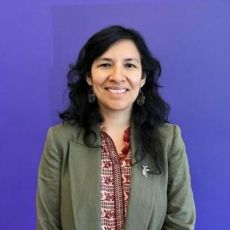Latin American Studies
The study of Latin America has a long and distinguished history in the department of Romance Studies, one that our faculty members maintain by constantly questioning and challenging its basic terms. We debate not only what “Latin America” is and how we may study it, but also if such a moniker aids or defeats our diverse intellectual projects. With a strong emphasis on multilingualism based in an awareness of the politics of language in the Americas, our faculty members are in conversation with the hispanophone, anglophone, lusophone, and francophone cultures of the region, and also reach out to indigenous universities and cultural producers now claiming their rightful place in the “Latin American” context. What is more, the “latinidad” of Latin America comes into view always in contact with the “latinidad” of Latino/a Studies (see link); in this department, the intellectual, historical and political borders between north and south are both porous and contested.
We approach Latin America, if we admittedly may never quite arrive there, in dialogue with other disciplines, beginning with literature and including history, philosophy, political theory, visual culture, performance studies, and mass culture. Equally diverse theoretical questions enliven our exchanges: how gender and sexuality are framed and lived, the political promise of decolonial thought, the nuances of history gleaned from fiction and poetry, the shape and sound of the trans-Atlantic sphere, the relationship between economies and expressive cultures, the historical and contemporary power of racial discourse and modes of surviving its violence, and the possibilities of artistic production beyond the logic of representation. These interdisciplinary and theoretical pursuits shape our pedagogy as well. Recent graduate seminars include topics ranging from theories of visual culture to decolonial aesthetics, from literature and democracy in 19th Century Latin America to civilization and barbarism in recent Latin American literature, to current discursive and cultural constructs in the Hispanic Caribbean. We have long encouraged students to mix practice with theory, beginning with Ariel Dorfman’s courses in fiction and essay writing and continuing with new interdisciplinary seminars on research as artistic practice.
Opportunities for research and study at Duke are enhanced by the Center for Caribbean and Latin American Studies, a Title VI funded center that fosters close ties with UNC-Chapel Hill, as well as institutional membership in the Hemispheric Institute of Performance and Politics (www.hemi.nyu.edu). We welcome applications for PhD students interested in working in these areas, and encourage interested applicants to contact directly the faculty members most relevant to their research.
Latino/a Studies
The Department of Romance Studies approaches the field of Latino/a Studies through a wide-ranging and innovative exploration of Latino and Latina literature, history, culture, and artistic practices. The Department configures a different and multifaceted mapping of Latino and Latina social and national identities, cultures, and networks by promoting comparative and interdisciplinary trajectories that engage with these transnational communities hemispherically and transatlantically. Our faculty’s scholarly endeavors urge a redrafting of the standard definitions of Latinoness and Latinaness in the United States, seeking broader connections and insights of Latino and Latina peoples, their intra-ethnic tensions and relations, diverse language experiences, and transcultural processes in the global borderlands of the United States, Latin America, and Spain. Latino/a Studies also integrates the local geography of Durham, North Carolina and the regional landscape of the U.S. South in the unraveling and production of knowledge that encompasses the incipient terrain of the recently denominated “Nuevo South.” Latino and Latina intellectual and cultural thought are fundamentally integrated to the larger oeuvres shaping Latin American and U.S. literature as well as discourses of the U.S. South, transamerican studies, and the emerging field of the global south.












